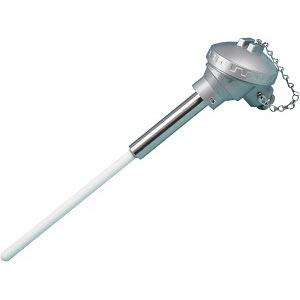
-- UK-based industrial process equipment specialist Process Parameters today reached out to us to discuss thermocouples, what they are and their purpose.
Thermocouples are devices that are used in a wide variety of different applications for measuring temperature. They consist of two dissimilar metal wires which are then joined together at one end to form a junction.
When the junction is heated (or cooled), a miniature voltage is generated in the electric circuit of a thermocouple which can then be measured, this is what corresponds to temperature. In theory, any two metals can be used to create a thermocouple however in actual practice, there are a specific number of types that are most commonly used. Thermocouples can be developed to suit almost any application, made to be robust, fast responding, and measure a wide range of temperatures.
Under laboratory conditions, the reference junction would be held at a known temperature, usually 0 °C but in normal industrial practice the junction is left at ambient temperature and an external sensor is used to compensate for this variation (known as cold junction compensation, usually a thermistor bead is used to measure the ambient temperature).
Quite simply as the temperature rises or falls at the measuring junction a voltage is generated within the circuit which correlates directly to temperature and can easily be converted by reference to the appropriate tables.
A thermocouple probe is the design of the sensor that it is made in. Whether the sensor is a thermocouple type K, J, T, N all of these thermocouple types can be manufactured in the same size tube, housing, or construction. To get an idea of the typical design available check out some of our thermocouples sensor range.
For more information about thermocouples or what process parameters has to offer, please see here: https://www.processparameters.co.uk/thermocouples-sensor/
Release ID: 88998030

